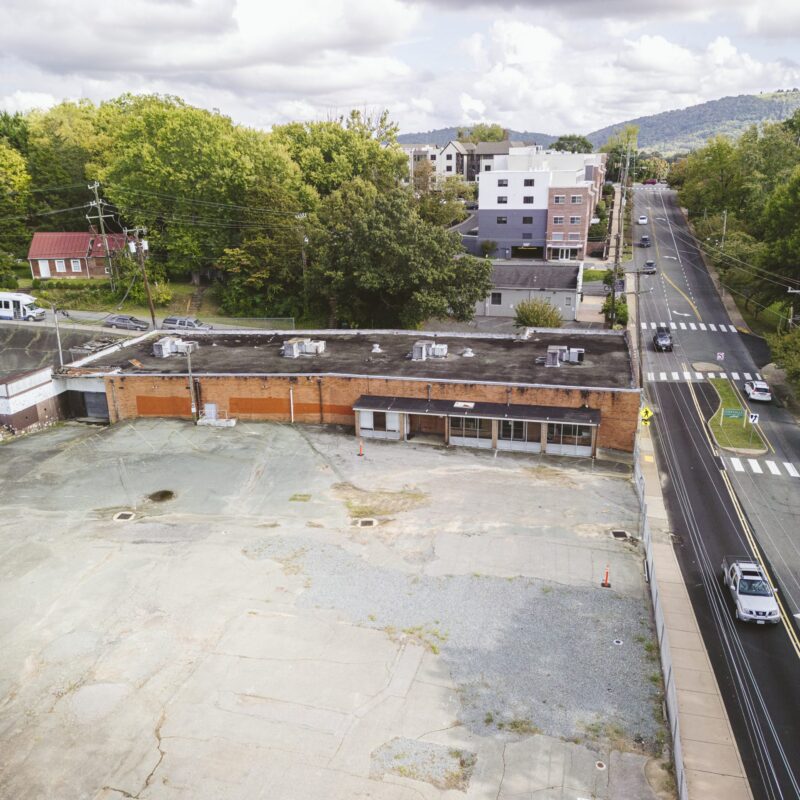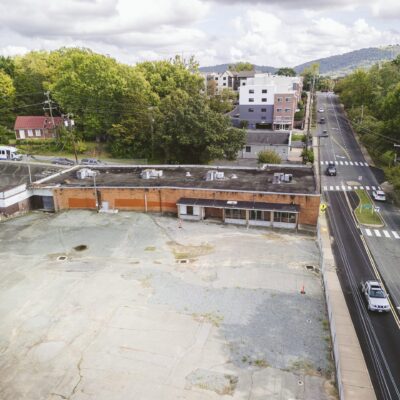Tuesday, August 9
City will vote on elected school boards
City Councilor Rob Schilling today announced that he was cheered by news that on November 8, Charlottesville voters will decide whether the City School Board should be elected or appointed. Motivated in part by irritation with the previous board’s handling of last spring’s superintendent crisis, volunteers collected more than 3,000 signatures to get the referendum on the ballot. In recent weeks, Schilling has announced that he favored the referendum. He campaigned for office three years ago on a platform that included electing the school board but then
said little more on that front until others started squawking.
Wednesday, August 10
Osama punchline falls flat
Today 59th District Delegate Watkins Abbitt, an Independent from Appomattox, stunned dozens of senior citizens with a joke about longtime Charlottesville Delegate Mitch Van Yahres. The recently retired Van Yahres was at the Albemarle Senior Center, moderating a Q and A between voters and local candidates for State offices. Having Van Yahres as moderator, quipped Abbitt, was like asking “Osama bin Laden to negotiate a peace between the U.S. and Iraq.” Abbitt, a conservative running unopposed in his district, repeatedly assured the bewildered audience that he was just kidding Van Yahres, with whom he served for 19 years.
Court upholds socialist pledge
Today Virginia’s Fourth Circuit Court of Appeals affirmed the Commonwealth’s requirement that all public school children recite the Pledge of Allegiance every day. Francis Bellamy, a Baptist minister forced out of his Boston church for delivering socialist sermons, wrote the Pledge in 1892 as part of a promotion staged by a youth magazine to celebrate the 400th anniversary of Columbus’ arrival in America. In 1954, Michigan Senator Homer Ferguson sponsored a bill to add “under God” to the Pledge, so as to distinguish the U.S. from the “godless” Soviet Union. In response to a lawsuit by a Sterling man who argued that the Pledge promotes religion, today the court ruled that the Pledge is patriotic, not religious.
Thursday, August 11
“Alan as Art” hits the jackpot
For the 10th consecutive time the Federal Reserve raised interest rates this week. On that note, this morning’s lead story in The Washington Post’s business section featured portraits of Federal Reserve Chairman Alan Greenspan by local artist and UVA grad Erin Crowe. Crowe currently has an art show of her “Alans,” as she calls them, on display in Sag Harbor, New York. On Tuesday, CNBC featured the paintings on three separate broadcasts throughout the day. By that afternoon, Crowe’s show, which featured 18 Alans ranging in price from $1,000 to $4,000, had sold out. “It was like when a breeder goes to meet a puppy’s new parents,” Crowe told the Post. “I kept asking, ‘Where are you going to hang this?’”
Friday, August 12
Area jobs top 93,000
State job numbers increased by 1.4 percent in June, though in Charlottesville the growth rate was markedly less—one-tenth of 1 percent, according to 12-month figures announced today by Governor Mark Warner’s office. Total Charlottesville area jobs now number 93,000; statewide, nonagricultural employment rose to an all-time high of 3,674,600 jobs in June 2005. William F. Mezger, chief economist of the Virginia Employment Commission, attributes Charlottesville’s relatively stagnant growth to the season. June, he says, is traditionally the slowest month of the year in employment terms. Moreover, “at that time of year, you’re in a state of flux with the University. It accounts for almost a quarter of employment in the Charlottesville area. In summer, people are in a transition period with that.”
Saturday, August 13
Walton-heads pilgrimage to Nelson
Forget about Thomas Jefferson, UVA or “America’s No. 1 city.” When the rest of the world thinks of the region, the first thing that often pops into their heads is the classic feel-good TV show “The Waltons.” This was evident today as writer and show creator Earl Hamner, Jr. sat for three hours at Polly and Jim-Bob’s Bed and Breakfast in Schuyler, greeting dozens of fans. The 82-year-old Hamner—who also wrote the show “Falcon Crest” and the screenplay for E.B. White’s novel Charlotte’s Web—was back home in Nelson County promoting Earl Hamner: From Walton’s Mountain to Tomorrow, a new biography by James E. Person.
Sunday, August 14
Potts hits in Charlottesville
Virginia Senator Russ Potts, an independent candidate for governor, scored points in Charlottesville today when he spoke in favor of granting local governments greater autonomy from Richmond. Potts and Republican candidate Jerry Kilgore spoke to the Virginia Association of Counties at the groups’ summer conference at the Omni Hotel. Potts played to VAC’s demand for more political autonomy by pledging to loosen the 150-year-old Dillon Rule, which prevents local governments from taking any action without explicit permission from Richmond. The county supervisors comprising the VAC were less enthusiastic about Kilgore’s defense of the Dillon Rule.
Monday, August 15
A great excuse to be late for work
Dominion Virginia Power customers in Albemarle and Fluvanna could have slipped into work late this morning with a convenient excuse: “My alarm clock didn’t go off because I didn’t have any power.” A severe thunderstorm that struck Sunday evening left about 2,700 customers without electricity, and some, according to Dominion, did not have their power restored until this morning.
Written by John Borgmeyer from staff reports and news sources.
Boy Scout charm
Incumbent Rob Bell spins a nerdy image into political gold
With his large spectacles and penchant for exclaiming “Gosh!” it seems Rob Bell is positioning himself as Albemarle’s version of moviedom’s lovable dork Napoleon Dynamite. Bell, through his deft cultivation of a nerdy image and right-leaning rhetoric, has taken his political career off some sweet jumps.
Since Bell, a Republican, took the 58th District seat in the House of Delegates in 2002, the 38-year-old Orange County prosecutor has sponsored bills to crack down on abusive husbands, drunk drivers and middle-school bullies. Those bills have garnered plenty of headlines for the former Boy Scout—raising his profile and making him a tough opponent for Democratic challenger Steve Koleszar, a former Albemarle School Board member who hopes to unseat Bell on November 8.
Bell may not be easily defeated, but he may not be a delegate for long, either. Colleagues in the General Assembly say that behind Bell’s “golly gee” persona is a fierce intelligence and ambition for higher office. He has shrewdly generated lots of noncontroversial publicity—who’s going to argue against tougher penalties for drunk drivers?—while at the same time making friends with the Commonwealth’s powerful Republican right-wing. That’s the formula that former Albemarle Delegate Paul Harris used to leap from the 58th seat to a job with the Bush Administration.
In 2004, Bell was one of 45 Republicans to vote against a tax increase supported by Democrats and GOP moderates. Critics say Bell and his cohorts are anti-tax ideologues that oppose government spending on principle. At the same time, Bell has also helped fellow right-wingers curtail abortion rights and discriminate against gays. In 2004, for example, he supported greater regulation of abortion clinics and a controversial ban on same-sex civil unions. In 2005 Bell voted to prohibit homosexuals from adopting children.
Yet Bell has proven he’s not merely a right-wing foot soldier. Last year he opposed a bill that would have stopped college health centers from distributing emergency contraception pills—a wise move in a district that includes many UVA employees. Indeed, Bell has so far been able to stay friendly with state conservatives as well as the more moderate Republicans in Albemarle and Greene.
Asked about seeking higher office, Bell insists he’s just trying to do a good job in the House of Delegates. In the edited interview that follows, Bell talks about his goals—clamping down on sex offenders, protecting property and saving money. Gosh, isn’t that nice?—John Borgmeyer
C-VILLE: What are your next goals as a legislator?
Rob Bell: I really want to work with other legislators on the State’s sex offender laws—everything from using GPS technology to keep track of these guys, to a more rigorous check-in with probation officers. What’s driving this is what happened in Florida [two young girls were killed there earlier this year, allegedly by convicted sex offenders]. I think a lot of states looked at that and thought, “Gosh, there’s nothing that happened there that couldn’t happen here.”
Another issue that really came out of the blue is eminent domain. It’s a white-hot issue for people when I’m out knocking on doors. Eminent domain is supposed to be for public uses, and there seems to be a consensus in the General Assembly to keep it that way. Next year I will support a cap on property tax assessments.
City and County leaders say that property taxes are rising so fast because the State is not paying its fair share of costs for education, transportation, public safety and social services. Yet you voted to cut taxes. Why?
It is inaccurate to imply that State spending is going down. In 1997 the State budget was $35 billion. When I was elected the budget was $47 billion. Now it stands at $60 billion. I think that should be enough to do what the State wants to do. It’s not fair that every time somebody has a good idea, that idea is thrown on top of all the other spending we do. We should choose among the good ideas.
Is it a question of the State spending its money on things it shouldn’t, or are local governments asking too much? Who needs to tighten their belt?
In a perfect world, we all would. The spending increases starting in 1997 were predictably unsustainable. There was no way you could expect to keep raising the State’s budget by double digits every single year, yet we acted like we could. Then when the bill came due, we went back to the taxpayers. I thought that was inappropriate, but I was ultimately outvoted.
The real deal
Prospect and Orangedale residents march against drug dealer
The vibe at the Blue Ridge Commons housing project on Wednesday, August 10, was nothing if not feel-good. About 150 people of all ages, from the Prospect Avenue and Orangedale neighborhood, as well as a smattering of people from other areas, gathered at 7pm to tell the drug dealers who’ve plagued the neighborhood for years what’s up: They’re not wanted.
As the group made its way down Prospect, right on Bailey, right again on Orangedale, up through Forest Hills Park and back to Prospect, people came to their screen doors and stepped out into their yards to watch. Democratic candidate for House of Delegates David Toscano swung a child back and forth between himself and his cohort City police officer. Eddie Howard, Prospect Avenue resident, member of Abundant Life Ministries, and march co-organizer, beamed and worked the crowd.
“It’s not just about criminals,” says Howard, “it’s about partnership, community and not being overlooked. We’re not just an article in the newspaper and that’s often what Prospect is [to the greater community].”
For years Prospect has been Charlottesville’s ground zero for drug dealers. Just last week, eight men who ran a drug ring in the neighborhood pleaded guilty on federal drug charges. The direct event that led to the march, however, was a drug-related shootout at Blue Ridge Commons two months ago. The gunmen shot 17 rounds, and bullets hit nearby houses. The community decided that enough was enough, says Officer Garlin Mills. Neighbors then approached Mills and Officer Paul Crawford about organizing an event that would raise community awareness of the problem.
Crawford and Mills have been working the Blue Ridge Commons beat and applying the principles of community policing for more than two years. Both officers knew almost everyone at the march by name and everyone seemed to know them. Mills says he has seen a drastic decrease in violence since he started working the neighborhood. Ronnie Lee Anderson, who has lived in the neighborhood for 40 years, agrees.
“The drug dealing is 100 percent better than it was a year ago,” he says, “and after tonight it’s only going to get better.”
Public perception of the area seems to be changing, too. According to City Assessor Roosevelt Barbour, Jr., in FY 2004 home assessments citywide rose by 12.1 percent, while Prospect Avenue assessments rose by only 6 percent. By contrast, in FY 2005, citywide assessments rose by 13.3 percent; 30 percent in the Prospect neighborhood.
“It’s basically because it’s the most affordable housing in the city,” says Barbour, adding that so far this year six homes in the area have sold, the most expensive going for $130,000.
Howard credits community policing along with Abundant Life, the Boys and Girls Club and other organizations, with the neighborhood’s improved safety. To keep the trend going, Howard says Prospect residents need to work with police and each other.
“Historically our relationship with the police department hasn’t been good,” says Howard. “But we need to communicate. We need to get on the same page.”
The march was a step in that direction.
As 13-year-old India Bell marched, she pushed her infant niece in a stroller.
“It’s a good thing to get rid of the drug dealers,” she said, “because they get drunk and high and then hit kids for no reason because they got all highed up.”—Nell Boeschenstein
In her sites
How Marion Dudley learned to stand up to The Man
Marion Dudley has lived at Sunrise Trailer Court, at 1410 Carlton Ave., in lower Belmont, for 25 years. It was a place that the lifelong Charlottesville resident says she figured she’d stay in until she “retired in peaceful bliss.” But the daydream came crashing down in the middle of last year when Julius Lively, the trailer court’s owner since 1976, found a developer to take the property off his hands. Initial plans called for a 96-unit, high-end development to replace the 20some trailer homes on the two-thirds-acre property. In the end, those plans were scrapped and Habitat for Humanity stepped in to purchase the property in November for $1.2 million in cash and considerations. Habitat has vowed to develop the property without displacing any current residents.
In connection with that goal Habitat has partnered with Charlottesville Community Design Center to forge relationships within the Sunrise neighborhood and host a competition among architects for multi-unit designs that would mix affordable and market-rate housing on the site.
The folks at Habitat as well as the folks at the Design Center credit Dudley with neighborhood leadership throughout this process, even enlisting her as a judge during the architectural design competition. Yet up until 2004, Dudley would have described herself as a homebody, a passive person who just went with the flow. Not true any longer. In her own words, Dudley describes her transformation into a housing activist and the go-to gal for concerned neighbors at Sunrise.—Cathy Harding
We had gotten word that the trailer court was for sale. It had been on sale for so long we had been lazy, I think. We got wind that it would be sold. The real estate dealer brought somebody down here. At first I didn’t pay attention, but the more I thought about it the more I thought, This isn’t going to work. We’re going to be thrown out of here.
Quite a few of us from the trailer park went to the Belmont Neighborhood Association meeting. The architect showed designs—some high-priced community that none of us would ever be able to afford to live in. We told the architect straight up the problems that exist down here. We put up with the sewage plant—it puts out an awful smell, enough to choke a maggot. The livestock yard—we’ve got used to the smell. The buzzards.
He went back and explained to the people wanting to buy the property that we were not happy and so they backed out of the deal. That’s when Habitat for Humanity stepped in.
I had gotten to the point where I was completely tired of being stepped on all the time and pushed to what I didn’t want to do. I had been such a passive person. But when it came to my neighbors—some are elderly and sick and couldn’t move—I got mad. So I cut loose. I knew the circumstances and it didn’t sit well with me at all.
I always talk with the neighbors before I spout my big mouth off to get their opinions and see what they want. Then we get out in the driveway to discuss it.
When Habitat and the Design Center had the walkarounds down here for architects and students to get a concept of the layout of land, they would ask questions. Other trailer court members would answer but they mainly said, “Marion, you answer it.” So I would. Habitat and the Design Center picked up that I was doing all the talking. When they came to me about the judging, I was thoroughly shocked. I was more than willing to try. It was difficult for me to get out and be involved in a public area. I’m not accustomed to it. I did do it and I enjoyed myself and learning all the different things about design I never would have dreamed of knowing. They gave me confidence too, they were so nice.
The whole thing has expanded my awareness. I did not realize to what extent development was going on in Belmont and Avon. I was shocked when I heard that. So much of the green space is being taken away. It’s mind-boggling to me. I know people need places to live, but it’s getting way out of control. I’ll hear something on TV and my ears will perk up. I’ll be driving around town and I’ll notice a new development and say, “What’s that?” Prior I would not have picked up on it so acutely as I do now. In the beginning, fear was motivating most of us. Would we be put out on the road somewhere? That stirred the neighbors up and had them talking more often. I let them know things immediately now. That Habitat is not going to be breaking ground until 2007 at the earliest. That has alleviated some of the stress the neighbors were under.
I think a majority of them are going to stay there.
They like the camaraderie. It’s always been a respectful trailer park, quiet. If you had a really bad problem you could always turn to one of the people in the trailer court. They were there for you. People will be watching your property.
Corner on the market?
A rash of vacancies prompt concerns for the shopping district’s health
Earlier this summer 14th Street was an awfully lonely place, and it had nothing to do with UVA students being home for summer break. If you walked up from University Avenue and looked to your left you’d find a string of businesses out of business. Frat headquarters Hoos Greek, earthy wares shop Trade Roots and standby slice parlor Frank’s Pizza all took the powder. Across the street, the former rental office for Eagle’s Landing apartments remained vacant. Around the corner on Wertland Street the Maharaja spinoff space gathered dust. Across from the Baja Bean patio the GNC space remained unused. And back on the corner of University and 14th longtime tchotchke purveyor/head shop Coyote called it quits.
It invited the question: Is the Corner in trouble?
Not necessarily, says Mark Mincer, president of Mincer’s University of Virginia Imprinted Sportswear, which just marked its 57th year on the Corner in July. He says that a turnover of between three and eight stores in a given year is fairly natural for any commercial district, especially one with a lot of mom-and-pop stores like the Corner. And he doesn’t think the recent rash of closings is all that unusual.
Nor does he think that the closings can be blamed on parking—or rather lack of it—which is often cited by locals as a reason to avoid the district. Even with the recent closure of the parking lot on Wertland to make room for more student housing/retail spaces, Mincer says, “There’s a problem parking on the Corner for only 12 to 15 hours a week, between the hours of 10:30 or 11am to 1:30 or 2 in the afternoon.”
Closings to the contrary, Mincer says the Corner is currently healthier than it’s been in years, relatively speaking. While 14th Street might have just gone through a rough patch, he says that there’s barely a single empty storefront anywhere on University Avenue right now since Bodo’s opened. And all the major spaces—huge storefronts like Starbucks and Plan 9—are totally filled.
That success may be the reason why the neighborhood’s loose-knit support system, the Corner Merchants Association, is dormant right now. Mark Lorenzoni of the Ragged Mountain Running Shop was previously a spokesperson for the organization. He’s still involved—in fact, he was getting the newsletter ready last week, urging storeowners to spruce up for the impending crush of Wahoo parents. But he says most Corner merchants are so busy running successful businesses (his Elliewood Store is now in its 23rd year) that they don’t have time for regular meetings. “But in crises, we band together,” he says. Lorenzoni also sits on a neighborhood advisory board for UVA in conjunction with the CMA.
Lorenzoni and Mincer both stress that there are a million reasons why businesses close—leases expire, people retire, something doesn’t click. Neither sees a trend on the Corner that suggests something is drastically wrong. Indeed, even now signs of life are popping up on the recently hammered 14th Street: Basil Mediterranean Bistro took over the Frank’s space, a 7 Day Jr. Market is slated to set up shop in the Eagle’s Landing spot and the White Spot is reportedly annexing Coyote. So while it might have been a cruel summer for some, the fall is looking up.
“A rising tide raises all boats,” Mincer says. “The tide here is rising, we’ve got a lot of our spaces filled. The Corner’s in as good a shape as it’s been in 10 years.”—Eric Rezsnyak



